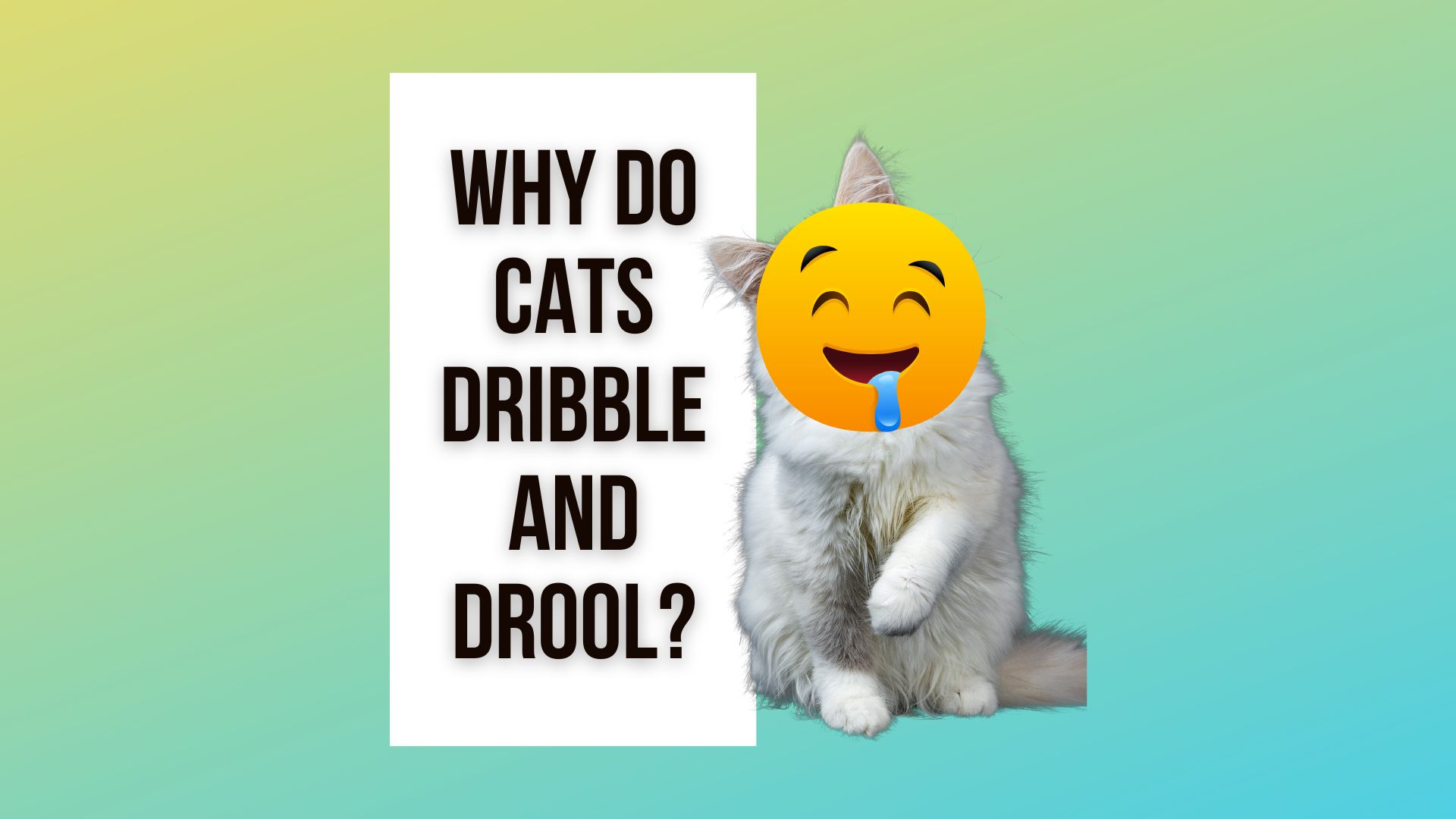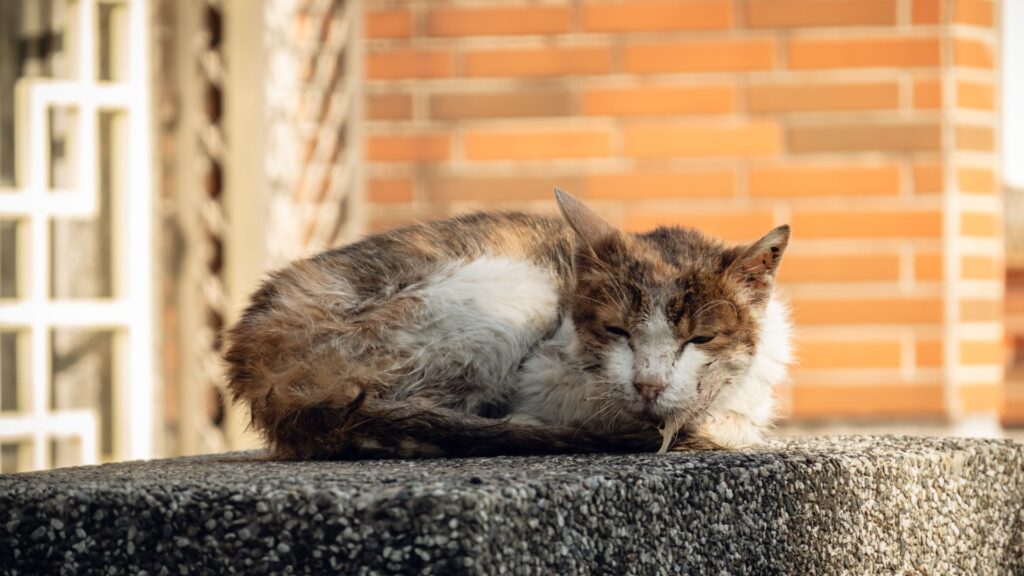
Wondering Why My Cat Drooling and Dribbling at the same Time? If you’ve observed your furball drooling, it is probably due to the fact she’s ill or stressed. Or, on the other hand, because she’s genuinely as relaxed as can be. Here is what to understand about cat drooling and how to inform if your furball needs clinical care.
A feline’s drool does not look like canine drool (i.e. long wisps of saliva); instead, you can see a single droplet of saliva dotting the region below your feline’s mouth, as they are decidedly much less messy droolers than canines. But why do cats drool?
There are numerous reasons why a cat may have this problem. Some of those reasons are extreme enough to require instant vet care. However, others are quite harmless and the drooling will disappear whilst the situation inflicting the conduct ceases.
Why Is My Cat Excessively Drooling All Of A Sudden?
Mouth Disease Can Cause Drooling In Cats
Tartar buildup can rub on the inner side of your feline’s lip, inflicting them to slobber. To take a look, pull their lip back in the direction of their ear.
Try an expert cleaning first, after which brush their teeth daily. Have your vet test for mouth ulcers, gingivitis, and tumors.
Trouble In Swallowing Is Another Reason For Drooling In Cats
While playing, a string might get caught in your feline’s mouth or wrapped around their tongue. Take the item out if it is easy to get rid of. Otherwise, call your vet for help.
Trying to remove a string that is swallowed, for example, could cause harm to the feline’s esophagus or stomach.
Then again, your cat would possibly need to resist swallowing just because they have got an awful taste in their mouth. Maybe they did not quite swallow their medicine or they ate or licked something like a frog or lizard.
Cat also Drools due to Heatstroke
Felines with flat faces, consisting of Persian cats, are much more likely to have heatstroke. It is not as common in felines as it is in different animals, though. Still, in case your feline had an excessive amount of sun or not enough water, it really is risky for them.
Always have fresh water available. Make sure your feline has shady locations to chill off, too. On very hot days, keep them indoors, restrict their exercise, and by no means leave them in a parked vehicle. Call your vet in case you suspect heatstroke.
Stress And Anxiety May Trigger Feline Drooling And Dribbling
Open-mouth panting and respiration are signs of anxiety. Being pressured can cause your feline to drool. In fact. there can be a couple of reasons for their stress. If this occurs when you put them in the vehicle to take them to the vet, try placing them in their carrier.
Gradually repeat the routine as needed to ease their stress. However, you can also drape breathable material over the carrier before heading out, so that they do not panic.
Cats with Organ disease sometimes drool
As pets age, they may be more likely to get sick. Liver and kidney illnesses can cause drooling, too. Vets recommend annual checkups to diagnose and deal with such illnesses early.
Poisonous plants consumption causes drooling
Common plants like azaleas, tulips, and chrysanthemums could make your feline drool.
In fact, they make them sick, so do not allow your furball to consume these plants.
For a list of toxic plants, take a look at the American Society for the Prevention of Cruelty to Animals (ASPCA).
Upper respiratory infections and Breathing issues make cats drool a lot
Drooling can signal an infection of the throat, nose, or sinuses. Felines that stay in houses or shelters with different pets have a better risk. Stress is another factor.
Nausea and cat drooling are also related
Organ disease and exposure to pollutants may also cause nausea, which in turn can motivate drooling. Only your vet should deal with an infection. But you can take steps to guard your cat against getting one.
Keep them updated on vaccines, indoors, and far from different pets. Also, wash your hands while handling distinct animals.
Only you understand your feline’s everyday behavior. Therefore, if it changes for more than a day, they appear stressed or are not ingesting and playing, as usual, Hence, allow your vet to know every detail.

When Should I Worry About My Cat Drooling?
If you are unsure why your feline is drooling, it is better to let her to the vet as soon as possible.
Check for these signs
- Have blood in saliva
- Sudden drooling
- Acting strange
- Constant drooling
- Symptoms like vomiting, pawing, or lack of appetite.
Why Do Cats Start Dribbling?
Felines can develop diverse oral and dental problems that can pass undetected till they cause excessive illness or ache. This ache frequently causes the feline to salivate excessively.
Mouth ulcers, teeth injuries, resorptive lesions, gum disease, and infections are a few famous reasons for drooling in felines.
Why Do Cats Dribble When Purring?
It is every day for felines to drool while kneading or purring. They are just so comfortable. You can also additionally see a few salivae or spit bubbles on the aspect of your feline’s mouth whilst they’re harassed or afraid.
Why Do Cats Dribble When Happy?
They’re comfortable.
These are all signs of a satisfied kitty and are nothing to fear about. Your feline is sincerely being transported back to kittenhood and the soothing presence of its mom.
So, the unexpected waterfall is simply your pet’s manner of expressing how cushy and comfortable they experience in your presence.
Why Do Cats Dribble When Kneading?
It is common for a few cats to drool whilst they’re kneading or purring. Drooling is usually a signal of relaxation and contentment that may be traced back to kittenhood.
While nursing, kittens frequently knead their paws on their moms to stimulate milk release
Why Do Cats Dribble When Petted?
Some cats can also additionally drool whilst they’re extraordinarily comfortable and enjoying petting.
This isn’t always uncommon and simply shows a physiologic reaction to happiness. Similarly, a few cats can also additionally drool whilst they’re asleep, possibly due to the fact they’re so comfortable.
Why Do Cats Drool Puddles?
A dental ailment may cause drool puddles
Early periodontal ailment, called gingivitis (irritation of the tissues surrounding the gum surrounding the teeth) or later-stage periodontitis, wherein the ligaments securing the teeth are affected, might also add both reasons for drooling. Cats might also additionally consume less, appear uncomfortable while eating, and increase pungent breath.
Why Is My Cat Drooling In The Car?
Cats might also additionally vocalize during a trip whilst they’re experiencing motion sickness, and they’ll drool excessively. On intense occasions, felines can also start to pant. You can also inform them that your feline is experiencing car sickness while you observe any signs like lip licking.
What’s The Average Lifespan Of A House Cat?
A cat’s life expectancy will rely on many factors, which include health, food regimen, and environment.
However, the common lifespan for a home cat is about 12-14 years. However, a few pet felines can stay around two decades old.
Do Cats Drool When Stressed?
Stress or worry might also additionally cause a feline to drool temporarily, such as during vet visits, vehicle rides, or loud events. If your feline appears extraordinarily stressed regularly, it is a good concept to speak to your vet about options. If the drooling and stress are short-lived and stop on their own, then there may be likely little cause for concern.
Is Cat Drool Harmful To Humans?
Cat scratch ailment resulting from a bacterium carried in the feline saliva. The microorganism is passed from an inflamed feline to a human after the feline licks an open wound or scratches bites or human skin hard enough to interrupt the surface of the skin.
Cat Drooling Before Death
End-of-life illnesses may be painful. However, your feline’s vet can prescribe pain relief. Subtle signs of ache encompass hiding, lack of appetite, drooling, sitting huddled together, neglect of grooming, restlessness, and lack of interest.

Hi, This is Alexa, and I love cats. This Website is a Complete Journal about how to travel with a cat and other information about Cat Health, Cat Training, Cat Behavior, Cat Foods and more. I hope you find it useful.
